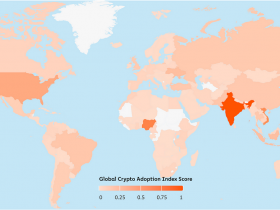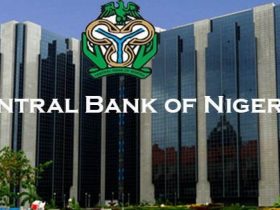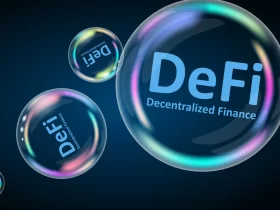The world of cryptocurrency can seem daunting, especially with its own unique vocabulary. From “HODL” to “DeFi,” there’s a whole new set of terms to learn. This blog post aims to demystify the jargon and provide you with a handy glossary of essential cryptocurrency terms, making your crypto journey smoother and more informed.
Essential Cryptocurrency Jargon:
- Altcoin: Any cryptocurrency that is not Bitcoin. Examples include Ethereum, Litecoin, and Dogecoin.
- Apeing: Investing in a cryptocurrency or NFT project with little to no research, often driven by FOMO (Fear Of Missing Out). Generally considered risky.
- ATH (All-Time High): The highest price a cryptocurrency has ever reached.
- ATL (All-Time Low): The lowest price a cryptocurrency has ever reached.
- Bear Market: A market characterized by declining prices.
- Bitcoin (BTC): The first and most well-known decentralized digital currency.
- Blockchain: A distributed, decentralized, and public ledger that records all cryptocurrency transactions. Think of it as a digital record book that’s shared among many participants, making it secure and transparent.
- Bull Market: A market characterized by rising prices.
- CBDC (Central Bank Digital Currency): A digital version of a country’s fiat currency, issued and regulated by the central bank.
- CEX (Centralized Exchange): A platform where you can buy, sell, and trade cryptocurrencies, operated by a central authority. Examples include Coinbase and Binance.
- Cold Wallet: A cryptocurrency wallet that is stored offline, offering a high level of security. Hardware wallets are a type of cold wallet.
- DCA (Dollar-Cost Averaging): An investment strategy where you invest a fixed amount of money at regular intervals, regardless of the price. This helps to mitigate the impact of price volatility.
- DEX (Decentralized Exchange): A cryptocurrency exchange that operates without a central authority, allowing users to trade directly with each other. Examples include Uniswap and SushiSwap.
- DeFi (Decentralized Finance): A financial system built on blockchain technology, aiming to provide decentralized alternatives to traditional financial services like lending, borrowing, and trading.
- DYOR (Do Your Own Research): A common phrase in the crypto community, emphasizing the importance of conducting thorough research before investing in any cryptocurrency.
- FUD (Fear, Uncertainty, and Doubt): Negative sentiment or information spread to create fear and drive down the price of a cryptocurrency.
- Fiat Currency: Government-issued currency, like the US dollar or the Euro.
- Gas Fee: A fee paid to process transactions on a blockchain network, particularly Ethereum. Gas fees vary depending on network congestion.
- Halving: An event that occurs approximately every four years on the Bitcoin network, where the reward for mining new blocks is cut in half. This reduces the rate at which new Bitcoins are created.
- Hard Fork: A permanent divergence in the blockchain, creating a new cryptocurrency. This often happens due to disagreements within the community about the rules of the blockchain.
- Hot Wallet: A cryptocurrency wallet that is connected to the internet, making it convenient for transactions but potentially less secure than a cold wallet.
- HODL: A slang term in the crypto community, derived from a misspelling of “hold.” It refers to holding onto your cryptocurrency instead of selling, even during market downturns.
- ICO (Initial Coin Offering): A way for new cryptocurrency projects to raise funds by selling tokens to the public. (Note: ICOs have become less common, with other fundraising methods like IDOs and IEOs emerging).
- IDO (Initial DEX Offering): Similar to an ICO, but the token sale happens on a decentralized exchange.
- IEO (Initial Exchange Offering): A token sale hosted on a centralized exchange.
- KYC (Know Your Customer): A process used by exchanges and other financial institutions to verify the identity of their customers, often required for regulatory compliance.
- Liquidity: The ease with which an asset can be bought or sold without significantly affecting its price.
- Market Cap (Market Capitalization): The total value of a cryptocurrency, calculated by multiplying the current price by the circulating supply.
- Mining: The process of verifying and adding transactions to the blockchain, typically done using powerful computers. Miners are rewarded with cryptocurrency for their work.
- NFT (Non-Fungible Token): A unique digital asset that represents ownership of something, such as artwork, collectibles, or in-game items.
- Node: A computer connected to the blockchain network that helps to validate and relay transactions.
- P2P (Peer-to-Peer): A system where users interact directly with each other, without intermediaries. Cryptocurrency transactions are often P2P.
- Private Key: A secret code that gives you access to your cryptocurrency. It’s crucial to keep your private key secure and never share it with anyone.
- Public Key: An address on the blockchain where you can receive cryptocurrency. It’s safe to share your public key.
- Satoshi: The smallest unit of a Bitcoin, equal to one hundred millionth of a Bitcoin (0.00000001 BTC).
- Seed Phrase (or Recovery Phrase): A list of words that can be used to recover your cryptocurrency wallet if you lose your private keys. Keep your seed phrase extremely secure.
- Sharding: A technique used to scale blockchain networks by dividing the database into smaller parts.
- Smart Contract: A self-executing contract with the terms of the agreement directly written into code. They automatically execute when certain conditions are met.
- Stablecoin: A cryptocurrency designed to maintain a stable value, often pegged to a fiat currency like the US dollar. Examples include Tether (USDT) and USD Coin (USDC).
- Tokenomics: The economic model of a cryptocurrency, including its supply, distribution, and inflation rate.
- Wallet: A digital wallet used to store, send, and receive cryptocurrencies. Wallets can be software-based (hot wallets) or hardware-based (cold wallets).
- Web3: A decentralized version of the internet, built on blockchain technology, with a focus on user ownership and control.
- Whale: A cryptocurrency holder with a large amount of a particular cryptocurrency. Whale activity can sometimes influence the market price.
- FOMO (Fear Of Missing Out): It’s that feeling of anxiety or apprehension you get when you think you might be missing out on something .The fast-paced and volatile nature of the cryptocurrency market makes it a breeding ground for FOMO ,with price pump ,New project and social media hype ,This can create FOMO, as people fear being left behind in the “crypto revolution.”
Why Understanding Crypto Jargon Matters:
Understanding cryptocurrency jargon is crucial for several reasons:
- Making Informed Decisions: Knowing the terminology allows you to understand the information you come across, enabling you to make informed investment decisions.
- Avoiding Scams: Being familiar with common crypto terms can help you identify and avoid scams.
- Navigating the Crypto Space: Understanding the language makes it easier to participate in discussions, read articles, and generally navigate the crypto world.
Conclusion:
This glossary provides a foundation for understanding the most common cryptocurrency terms. The world of crypto is constantly evolving, so it’s essential to continue learning and expanding your knowledge. By familiarizing yourself with this jargon, you’ll be better equipped to navigate the exciting and ever-changing world of cryptocurrency. Happy learning!












